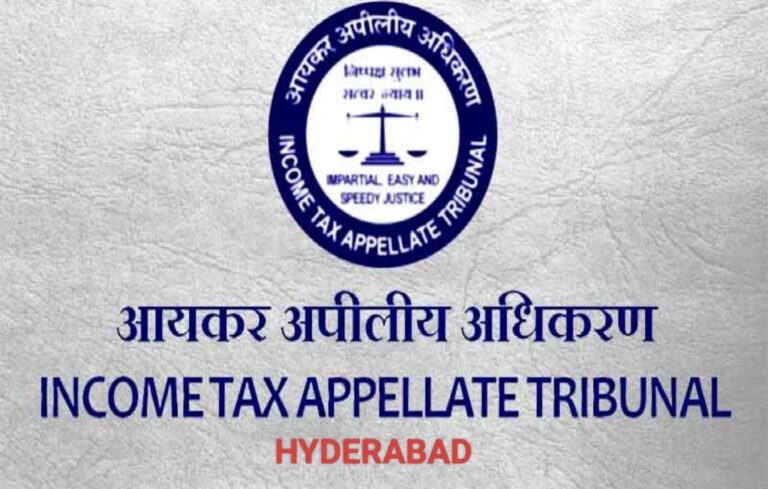The Hyderabad Bench of the Income Tax Appellate Tribunal (ITAT) recently dealt with the issue of penalty under section 271D of the Income-tax Act, 1961, in the case of Smt. Nimmatoori Yashoda vs DCIT. The assessee had received substantial cash consideration on sale of agricultural land, which the Assessing Officer held to be in violation of section 269SS, thereby attracting penalty. However, the ITAT emphasized that penalty under section 271D is not automatic and can be waived if the assessee demonstrates a reasonable cause under section 273B. Considering that the transactions were genuine, fully disclosed in the registered sale deed, and that there was no attempt to introduce unaccounted money, the Tribunal deleted the penalty, holding that the assessee’s bona fide belief and circumstances constituted a reasonable cause.
Facts / Background
- The taxpayers (Yashoda and others, trustees of Aurora Educational Society group) were subject to a search under section 132.
- They had jointly sold agricultural land (Bommaipally village) to M/s Aishwarya Infra Developers.
- As part of the sale consideration, large amounts were received in cash:
• For Yashoda: ₹1.62 crore
• For another party (Sulochana): ₹90.80 lakh - The AO initiated penalty proceedings under Section 271D on the ground that the cash receipts contravened Section 269SS (i.e. not accepted by account-payee cheque/draft etc.).
- The AO (and possibly CIT appeals level) held that such cash receipt was a violation and penalty should be imposed.
Decision / Outcome
- The ITAT Hyderabad deleted the penalty under section 271D.
- The Tribunal accepted that a “reasonable cause” (or bona fide belief) could excuse non-compliance with section 269SS / avoid penalty under section 271D.
- It was observed that the transaction was genuine, full disclosure was made (i.e. the cash receipt was recorded in the sale deed and disclosed in the return), and there was no intention to introduce unaccounted money.
- The ITAT appears to have accepted that the assessee had a bona fide belief that the restriction in 269SS might not apply in the case of agricultural land, or at least in the given circumstances.
Key Legal / Tax Principles Illustrated
This case is significant because it reinforces certain principles in penalty jurisprudence under Sections 269SS / 271D, especially in the context of agricultural land transactions. Some of the takeaways and principles:
- Penalty is not automatic
The fact that there is a breach of section 269SS (accepting cash amount in excess of limits) does not automatically lead to a penalty under section 271D. The assessee must show a reasonable cause under section 273B for non-compliance, and that the breach was not with mala fide intention. (This is consistent with established jurisprudence.) - Genuineness of transaction and no tax evasion motive
The Tribunal gives weight to whether the transaction is bona fide, whether the cash receipt was properly recorded (e.g. in the sale deed), and whether there is any suspicion of tax evasion. In this case, since the AO did not dispute the genuineness or make additions, that was a favorable factor. - Belief / understanding of applicability
The assessee apparently contended that in her bona fide belief the restriction in section 269SS might not apply (or was inapplicable) to sale of agricultural land (or under the facts). The Tribunal seems to have accepted that such a belief, if honest, may constitute a reasonable cause in appropriate circumstances. - Full disclosure and consistency
Because the transaction and cash receipt were disclosed in the sale deed and in the income tax return, it helped the assessee’s case (i.e. no concealment). - “Reasonable cause” is a fact-intensive inquiry
What constitutes “reasonable cause” will depend on the facts of the case. The decision underscores that the burden lies on the assessee to establish that non-compliance was due to reasonable cause, not willful or deliberate default. - Distinguishing earlier precedents
The Tribunal may distinguish or weigh past decisions where circumstances were different (e.g. where there was no disclosure, or where the AO doubted the genuineness).
Critical Observations & Caveats
- The acceptance of a bona fide belief that 269SS does not apply to a particular transaction is factually delicate — whether it holds will depend on how plausible the belief is, whether it’s consistent with law, etc.
- This decision does not mean that in all cases of cash receipt in sale of agricultural land the penalty will be deleted; the distinguishing facts, disclosure, and evidence of bona fide belief are crucial.
-
Another case at Hyderabad (Surender Reddy Vanteru) has been cited where ITAT Hyderabad sustained penalty for cash receipts for agricultural land due to lack of reasonable cause.
